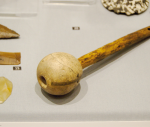You are here
The antidote to populist opportunists
May 24,2017 - Last updated at May 24,2017
The landslide reelection of Iran’s President Hassan Rouhani sent a fresh message to the world that neo-fascists, racists and ultras of all stripes are not on the rise.
Moderate Rouhani won 57 per cent of the vote, compared to 39 per cent for his rival, Ebrahim Raisi, a hardline conservative with blood on his hands.
Although Iran’s elections are carefully choreographed by the ruling clerical elite, once candidates were vetted for piety and loyalty to the Islamic Republic, the vote was generally free and fair.
The clerics like it that way as periodic elections for president, parliament and local councils revalidate and relegitimise the regime.
The clerics do not, however, like disruptive reformers like Rouhani and can be expected to try to obstruct his efforts to promote social and political freedoms, secure jobs for the jobless, fight corruption, and open Iran to foreign investment and trade.
The clerics are behind the times.
Iran has changed in the 38 years since the revolution that brought Ayatollah Khomeini to power.
The public wants a new deal. Obstructing the emergence of a new deal could very well deprive the clerics of the legitimacy they believe they attained by holding elections.
Rouhani’s triumph came on the heels of the election of Emmanuel Macron, a progressive centrist, to the presidency of France.
Macron is a young man without experience of elected office who defeated nine rivals from well-established parties in the first round of voting.
He secured a major victory over Marine Le Pen, head of the hard right National Front, in the second round, where he took 66 per cent of the vote.
He has since formed a Cabinet by raiding both the centre of the conservative Republican and left-of-centre Socialist parties, and recruiting independents.
Half of his Cabinet members are men, half women, a record for France.
A year ago, Macron established his own centrist political party, which has put forward a large slate of candidates, half women, for the June 11 parliamentary election. Among the candidates are shop keepers, magistrates, a female bull fighter, firemen, lawyers, doctors, a mathematician, teachers and workers.
Macron seeks to upend the staid French political system. He calls for an end to the dominance of the French political scene by the two main parties.
The defeat in March of Geert Wilders’ anti-European Union, anti-migrant, anti-Muslim Freedom party in Holland’s parliamentary election was also a blow to rightwing populists who seemed to have been on the ascendancy following Britain’s vote for exit (Brexit) from the European Union and the elevation to the US presidency of Donald Trump.
Brexit won by such a narrow margin (51.9 per cent) in last June’s referendum that the country’s Conservative Prime Minister Theresa May might have well have responded cautiously to this result.
Since the “leave” vote was unexpected and delivered a major shock to the British public, she could have found a way to remain. Instead, May, who did not favour exiting the bloc, dedicated herself to Brexit without serious consideration of how damaging divorce could be for Britain.
She has recently called an early general election, for next month, with the aim of securing a solid majority for her party in parliament in order to strengthen her hand in divorce negotiations.
Trump won the US election last November by Electoral College votes from the hinterland, but lost the popular vote to his rival Hillary Clinton, the first woman to ever stand for the top office for one of the two major parties.
Trump and his campaign team did not really expect him to win and did not prepare properly for his transition from tycoon to president. Consequently, his move to the Oval Office of the White House has been chaotic.
To make matters worse, the chaos has been magnified by Trump himself who is a deeply unstable individual, untutored in politics, uninterested in US domestic and foreign affairs, undiplomatic and outspoken, rash and an insomniac addicted to tweeting his ignorance in the middle of the night or before dawn.
Most Congressional Republicans continue to back the erratic, unpredictable Trump because he is prepared to back their reactionary, destructive right-wing legislative agenda.
However, wise Republicans are beginning to fear they could lose their jobs in the 2018 bi-election when all Lower House seats and one-third of Upper House seats are up for election.
The common factor in these popular consultations is alienation of large numbers of voters.
The largest group consists of marginalised members of the lower-middle and working classes who have lost jobs due to technological advances, the closure of factories and commercial enterprises, outsourcing and economic melt-down.
Alienated men and women supported Raisi in Iran, Le Pen in France, Wilders in the Netherlands, Brexit in Britain, and Trump in the US.
The disaffected backed hardline clerics in Iran, joined religious fundamentalist, neo-Nazi and ultra-nationalist movements across Europe, and backed the racist Ku Klux Klan in the US.
For them, the solution to their troubles is the proverbial “man on horseback”, formerly a military leader, but today a populist opportunist, like Le Pen, Wilders or Trump, who promises to deal with the lower-middle class and working class crisis.
But such leaders cannot and do not deliver, leaving their backers in the lurch, increasing alienation and producing desperation.
The antidote to such leaders is level-headed politicians with sensible programmes that can be implemented if the alienated, through right-wing parties, do not block the way.












